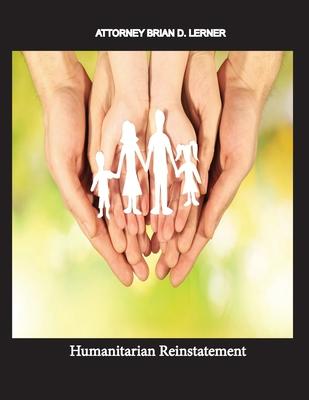Has your immediate relative petitioned you to come to the United States and then passed away suddenly and your I-130 has been denied due to the death of your immediate relative? The best option for you would be the Humanitarian Reinstatement which makes it possible for you to have the I-130 reinstated so you don't have to start the immigration process all over again. Assuming you and the Substitute Sponsor will experience hardship if your I-130 is not reinstated, and the hardship is documented, the Humanitarian Reinstatement will have the best chance for approval. It includes all relevant cover letters, forms, exhibits, and supporting evidence. It has been prepared by an expert Immigration attorney. Thus this book will allow you to see a guide of how it's done, prepared and submitted.
If the Humanitarian Reinstatement is approved, then you will not lose the priority date and will not have to wait many more years to get a current visa date from another petition. Additionally, if the Humanitarian Reinstatement is approved, then the beneficiaries of the approved petition will also be able to immigrate to the U.S. It is the best way to proceed if a petitioner has died.
The bottom line for the Humanitarian Reinstatement is that the officer has to be convinced to actually reinstate the I-130 petition. This is much more than simply getting a substitute sponsor. Rather, it would be preparing evidence through legal argument that the beneficiary deserves the Humanitarian Reinstatement to be approved and that the petition should proceed forward so that the beneficiary can immigrate along with his or her dependents. It does take around one year to get the answer on the Humanitarian Reinstatement so you must be patient. Do not go to the interview thinking the Consulate Officer will not know that the petitioner has died.
It does take time for U.S. Immigration to adjudicate the petition for the Humanitarian Reinstatement, but it is a lot better than starting over. Some people think they can still go to their interview and everything will proceed, but that is not the case. In fact, once the petitioner dies, so does the petition - unless the Humanitarian Reinstatement is approved.
The cover letter here was prepared by a qualified and expert immigration attorney in the U.S. who has been practicing immigration law for nearly 30 years. It is the next best thing to having an attorney do the Humanitarian Reinstatement Application without having to pay an attorney. Take advantage of this petition and show everything you can to try to get approved. Do not get lulled into the false belief that it is easy to get a Humanitarian Reinstatement. The officer must be convinced.
This particular sample is an actual Humanitarian Reinstatement Application where it is filed inside the U.S. with all of the various examples and supporting evidence. It assumes that the beneficiary was outside the United States when the petitioner died and is still outside the United States. Of course, it assumes the petitioner has died. Note that our library includes not only this Humanitarian Reinstatement application, but also multiple types of work-permits such as the H-1B Specialty Occupation Visa Petition, the O-1 Extraordinary Alien Petition, PERM examples, I-140 Applications and many more. If you enjoy this F-1 Reinstatement Petition and it makes your life easier, then come back and try the other immigration applications and petitions.
Either way, we certainly hope you find this petition useful and helpful and hope for the best immigration experience you can have. We do have petitions on every subject area of immigration, and you might look at those if needed as well. If you do need to actually have a consultation, you can call our U.S. Immigration Law office at 562-495-0554 for an initial free consultation to determine what must be done to help you and your family.
